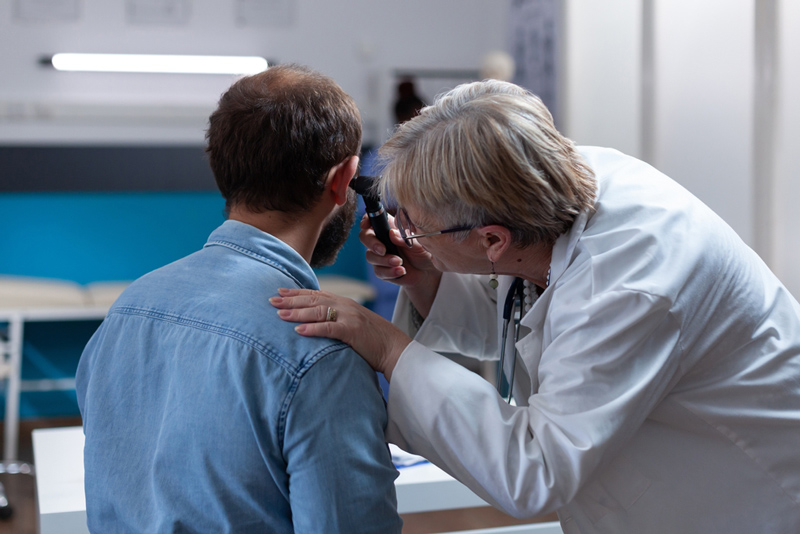Hearing loss is a common and often progressive condition that can impact your life. It's important to understand how hearing loss develops and why it progresses. Implementing preventive measures are crucial steps in preserving your auditory health. Let's explore strategies to slow the progression of hearing loss. This can empower you to take proactive steps towards maintaining optimal hearing function.
The Development of Hearing Loss
Hearing loss can develop over time. There are various factors that can lead to the onset and progression of hearing loss. Age-related hearing loss is a common form of hearing loss that affects many people as they grow older. Exposure to loud noises and genetic predisposition can also lead to hearing loss. Certain medications, underlying medical conditions, and lifestyle factors can also cause hearing loss. The inner ear has hair cells that convert sound vibrations into electrical signals. They can become damaged or deteriorate with age and exposure to harmful influences. This damage can result in reduced auditory sensitivity, leading to hearing loss.
Factors That Can Lead To Hearing Loss Progression
Several factors can exacerbate the progression of hearing loss. Continued exposure to loud noises can damage the delicate areas in the inner ear. Concerts, machinery, or prolonged headphone use at high volumes can worsen hearing loss. Smoking can affect blood circulation to the inner ear and makes hearing loss worse. Certain medical conditions can impact your hearing and lead to progressing hearing loss. These conditions include diabetes, cardiovascular issues, and ototoxicity from medications. It's important not to ignore ear hygiene. Failing to address ear infections or ear-related issues can worsen hearing loss.
Preventive Measures to Slow Hearing Loss Progression
You need to take proactive steps to protect your hearing health. This can help slow the progression of hearing loss and preserve your hearing.
- Limit exposure to loud noises. Use ear protection in noisy environments. Turn down the volume on personal listening devices. Take regular breaks from loud activities to reduce the risk of damage to your ears.
- Maintain a healthy lifestyle. A balanced diet rich in omega-3 fatty acids, antioxidants, and vitamins A, C, and E can support your ear health. Regular exercise, lowered stress levels, and not smoking can also help your hearing.
- Regular hearing screenings. Schedule routine hearing evaluations with a qualified audiologist. They can track your hearing health and address any changes. Early detection and intervention can help better manage hearing loss.
- Practice good ear hygiene. Avoid inserting objects into your ears. Clean your ears in a gentle manner. Seek treatment for any ear infections or issues. These can help to prevent potential complications that could exacerbate hearing loss.
- Consider hearing protection. When engaging in activities with high noise levels, wear earplugs or earmuffs. These activities can include concerts, sporting events, or construction work. This can help to protect your ears from damaging noise exposure.
Contact Us
Hearing loss is a prevalent condition that can progress over time. As it progresses, it can affect various aspects of your life. You need to know the factors that lead to the development and progression of hearing loss. With preventive measures to protect your hearing, you can slow hearing loss progression. Preserve your ability to communicate, engage with others, and enjoy the sounds of life. If you need help preserving your remaining auditory health, contact us today. By taking proactive steps today, you can cultivate a healthier future for yourself. Experience the benefits of optimal hearing function in the years to come.






